
Autistic Individuals RARELY "Wander": 4 Questions to Jumpstart Your Search
Apr 21, 2022I have lost my son five times.
I have lost him out my front door, back door, in a shopping mall, in the desert of Palm Springs, and in a water park 3,000 miles from my home. Each of these events has two things in common:
1) It buckled me to the point of complete panic and shutdown.
2) He didn't "wander."
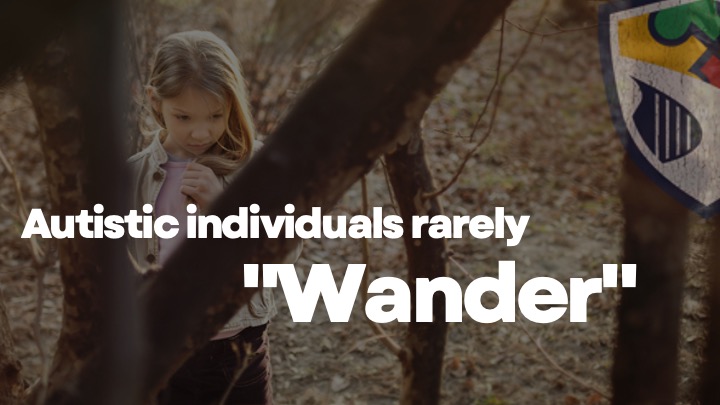
The major Autism-related organizations, advocacy groups, even the CDC use the term "wander" and "wandering prevention" synonymously with incidents of Special Needs individuals going missing:
National Autism Association: Wandering
Autism Speaks: Wandering Prevention Resources 
CDC: Disability and Safety - Information on Wandering 
Respectfully, they are wrong.
Miriam-Webster defines "wander" as "going about from place to place, usually without a plan or definite purpose. 'Wander' implies an absence of or an indifference to a fixed course."
My friends, there is ALWAYS a goal, destination, purpose, or motivation behind the behavior- even if they are nonverbal, severely affected, and cannot communicate it. The key to successful finds is investigating and unlocking those underlying motivations.
Challenging? Absolutely.
Impossible? Not in the least.
Let me begin by explaining my aversion to the term "wandering." I don't want to be the word police, and I don't want to oversell my argument. But I believe approaching these critical events with a mindset of locating a "wandering" individual puts us at an unnecessary disadvantage: a loser's attitude.
When I close my eyes and think of someone "wandering," I see a zombie or a robot that mindlessly walks in a general direction until she hits a barrier, then bounces off it and continues on another aimless path.

This approach completely discounts and disrespects the intelligence and depth of the individual for whom I am searching. An officer, SAR professional, or volunteer assigned to a specific area, quadrant, or task looking for a mindless zombie "wandering" around is banking on random chance and luck.
I can't stand banking on luck. When I conduct searches, I want information, data, and insight. I want every resource available to tip the scales in my favor. I hope you do too.
We have to approach these critical events as investigators. Knowing the right questions to ask AFTER YOU FIRST CHECK AND ASSIGN TEAMS TO EVERY BODY OF WATER will set the course for success and possibly avert tragedy.
Here are 4 basic questions that will jumpstart your search and put you in the mindset of EMPATHY (my all-time favorite word) for the missing individual. I offer these questions not to take the place of a carefully detailed search but to assist your initial search efforts and improve efficiency.

1) What do they LOVE?
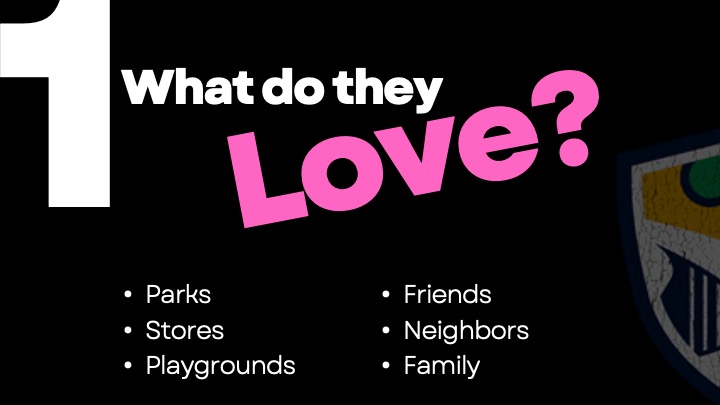
I know it seems simple. But, walk with me a minute.
"Mrs. Smith, please tell me about your son, Tommy. What does he love?"
"Well, Tommy loves baseball, pizza, his grandma, Sesame Street, and swimming."
Guess where I'm sending teams immediately? Yep, every pizza place, every baseball field, the route to grandma's house, and EVERY BODY OF WATER DEEPER THAN A PUDDLE.
2) What do they HATE?
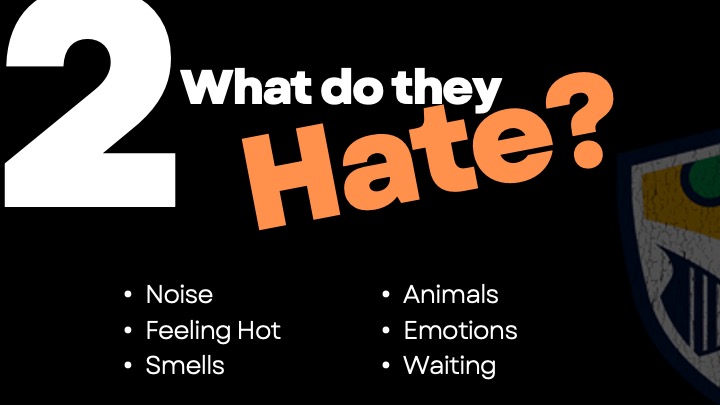
"Tommy seems like such a cool kid, Mrs. Smith. Can you tell me what he hates? What drives him nuts?
"Well, Tommy can't stand crying babies, being hot, the smell of hotdogs, waiting his turn, or wearing shoes."
3) What was the PLAN?
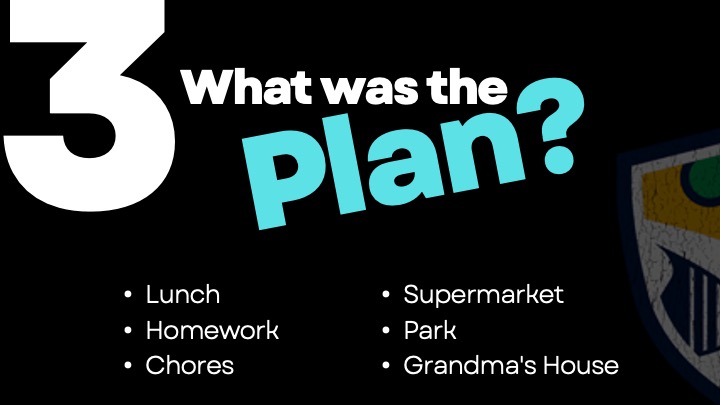
"Well, I had to finish some laundry, then Tommy and I were going to finish his homework, then we were going to the mall for new sneakers, then a visit with his grandma."
There she is again: Grandma. Tommy loves his grandma, is impatient, and dislikes waiting. He was planning on visiting her after completing a bunch of uninteresting tasks. I'm betting Tommy is either walking to grandma's house or has climbed into the back seat of mom's car in anticipation of the trip.
4) Did something NOVEL occur before he disappeared?

For example, did a helicopter fly low over the house? Can you hear kids playing across the neighborhood? Was there a thunderstorm? Did the ice cream truck drive by the house?
These questions are not foolproof. I can make no guarantees, and I know these calls are more complicated than this. However, approaching the incident as an investigator seeking empathy and insight into the behavior's motivations is a much more sound strategy than beginning a massive search for a little kid with Special Needs "wandering."
Finally, I want to leave you with one thought. If you forget everything else, remember this:
"Nonverbal" DOES NOT mean "unable to communicate, understand, plan, process, feel anger, act out of spite, play jokes, or feel ashamed."
"Nonverbal" means "unable to talk." Everything else is still on the table.
You can download these 4 Turbocharge Questions in .pdf form here. Print them, share them, and tape them to your dashboard.
 4 Questions to Turbocharge Your Search
4 Questions to Turbocharge Your Search
For more on this topic, please join me on this short FREE webinar.
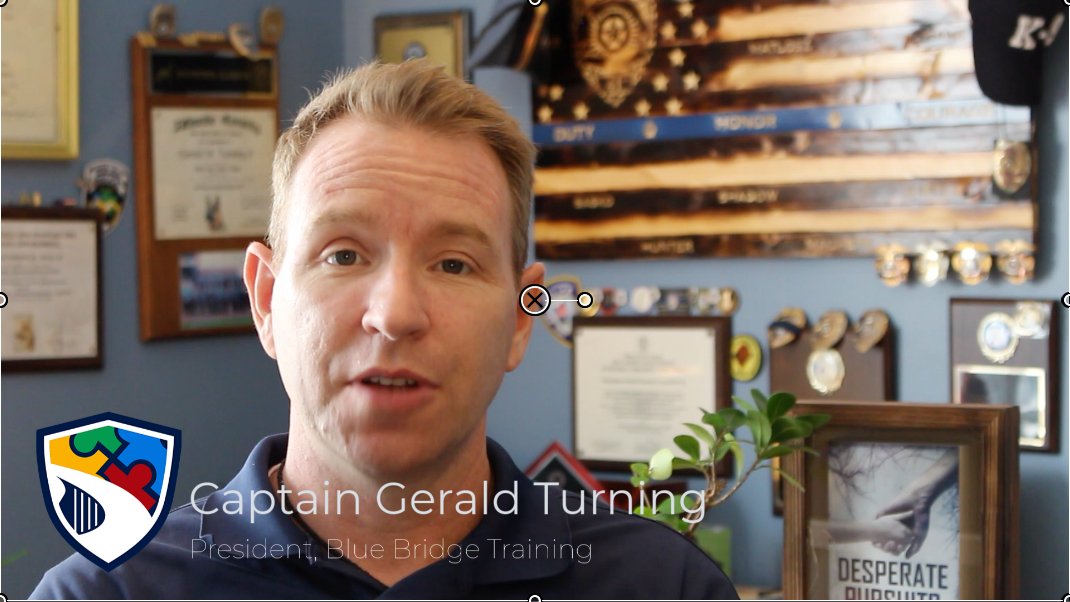
For information on my complete Autism Training program for police, first responders, and Search & Rescue professionals, please visit my website: www.bluebridgetraining.com.
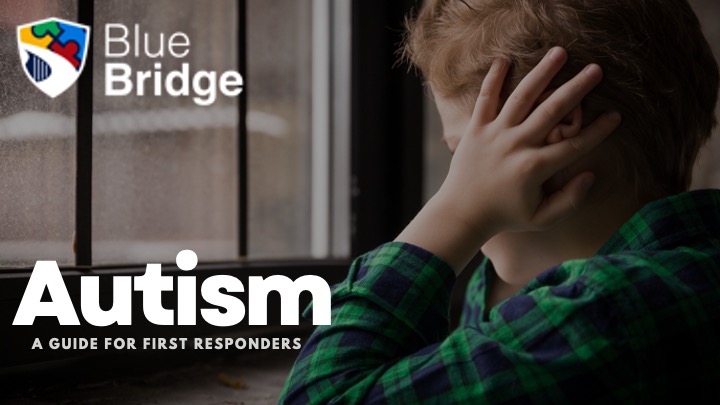
I look forward to working with you and, as a proud Autism Dad, thank you from the bottom of my heart for your service and commitment.
Other Useful Resources:


